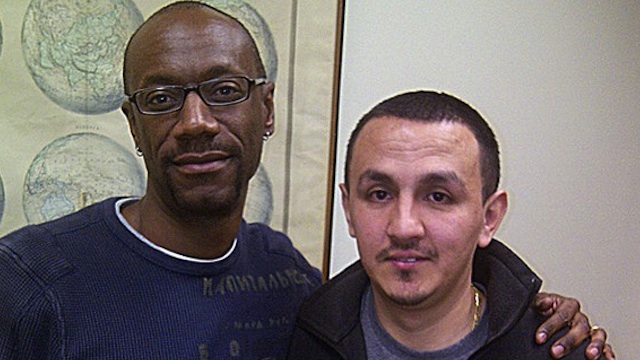SUMMARY
This is AI generated summarization, which may have errors. For context, always refer to the full article.

WASHINGTON DC, USA – The Supreme Court ruling extending federal benefits to gay couples had immediate, dramatic consequences. Just ask Steven, who was minutes from a deportation order but can now legally stay in New York with his US husband Sean.
The high court published its landmark decision on its website at 10:00 am Wednesday, June 26, leaving an intern at law firm Masliah Soloway with just 30 minutes to print it out and race five blocks to an immigration court, where a judge was considering an order to expel Steven, an undocumented immigrant from Colombia.
The 35-year old had married American Sean Brooks in New York after gay marriage was legalized in the state in 2011. But the federal benefits that are the rights of married heterosexual couples, including permanent residence “green cards” for spouses, are not bestowed on gay couples.
For most Americans, filing a green card application for his or her foreign spouse is merely a formality.
But for Steven, who has lived in the United States with Brooks for 10 years, it put his immigration status in jeopardy, and he was facing deportation — until the intern showed a copy of the Supreme Court filing to the judge.
“It’s very surreal, almost as if someone said: ‘Oh, you can now do the life that you thought you were going to do,” Brooks, 46, told AFP.
The judge acknowledged the landmark nature of Steven’s case in the face of the just-overturned Defense of Marriage Act, said attorney Lavi Soloway, co-founder of the DOMA Project, which defends 70 couples in similar situations.
“She understood the meaning of the case, and that meant that the couple before them was the first married same-sex couple in the United States that would be viewed as a married couple by a federal government agency,” Soloway said.
Steven was simply “relieved” to know he will receive legal permanent residency status, which allows him to work in the United States and travel abroad.
“Before it wasn’t even worth having those types of dreams because we knew they couldn’t happen,” Brooks said.
Immediate effect
For married same-sex couples, the good news is that the law need not be modified for immigration rights to kick in, and that could lead to “fast and dramatic changes” in immigration processing, said lawyer Greg Siskind.
“Any marriage performed in a state or country where a same-sex marriage is legal should now be recognized for immigration purposes,” he said.
For civil unions, however, the situation does not change right away.
With restrictions evaporated, an amendment being introduced in the Senate that sought equal immigration treatment for straight and gay married couples was deemed irrelevant and pulled by its author, the veteran Democratic Senator Patrick Leahy, a longtime supporter of gay marriage.
“With the Supreme Court decision today, it appears that the anti-discrimination principles I have long advocated will apply to our immigration laws and to binational couples, and their families can now be united under the law,” Leahy, 73, said on the Senate floor.
News of the ruling — and his implications for binational couples — spread like wildfire through the gay community.
The group Immigration Equality posted a guide on its website explaining the law’s impacts.
“Couples forced into exile will be coming home soon. Americans separated from their spouses are now able to prepare for their reunion,” the group’s executive director Rachel Tiven said in a statement.
“Today’s ruling is literally a life-changing one for those who have suffered under DOMA and our discriminatory immigration laws.”
Twelve states and the capital city Washington allow gay marriage. After the Supreme Court rulings on Wednesday, California has effectively become the 13th state legalizing same-sex marriage.
But there are bans in place in the remaining 37 states, and same-sex couples will not receive federal benefits unless they marry elsewhere.
For example, a Texas couple can wed in New York and get federal recognition of their marriage, even if tax administrators in the state of Texas continue to treat them as if each spouse was single.
“Today is a good day. Tomorrow the work continues because we still have 37 states where marriage equality is not the law of the land,” said Heather Cronk, managing director of social justice group GetEQUAL.
But “today is definitely a good day, no doubt,” she said Wednesday. – Rappler.com
Add a comment
How does this make you feel?
There are no comments yet. Add your comment to start the conversation.